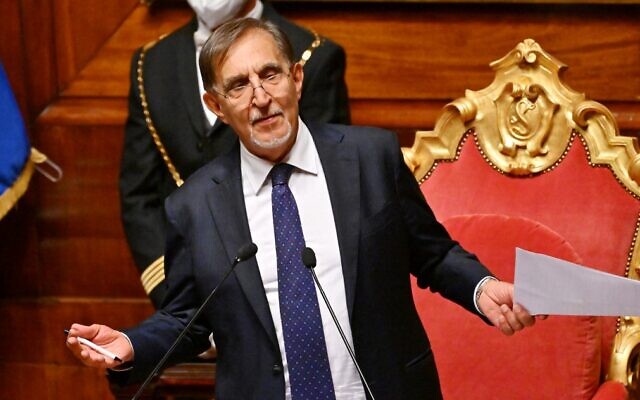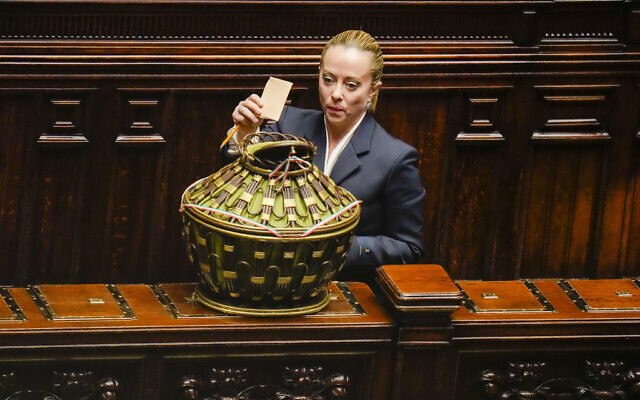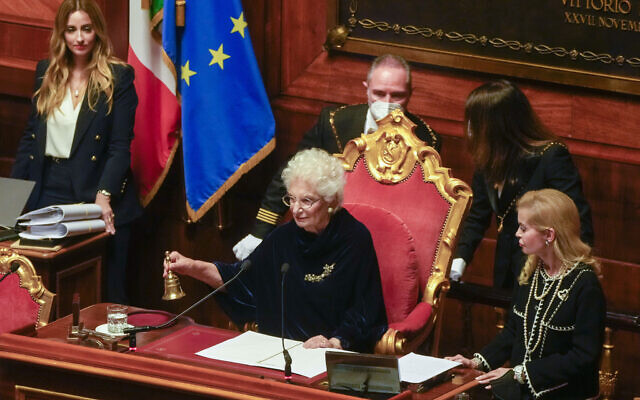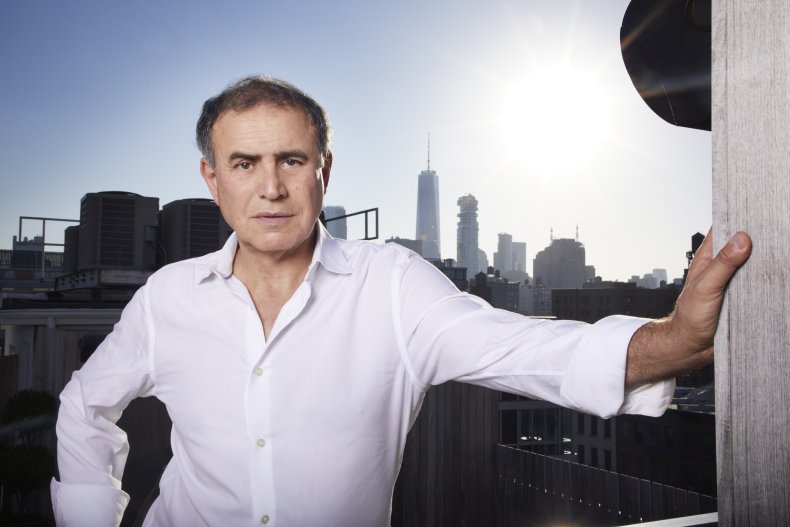Reactions: US Sept CPI fortifies hawkish case in Fed inflation battle
Reuters
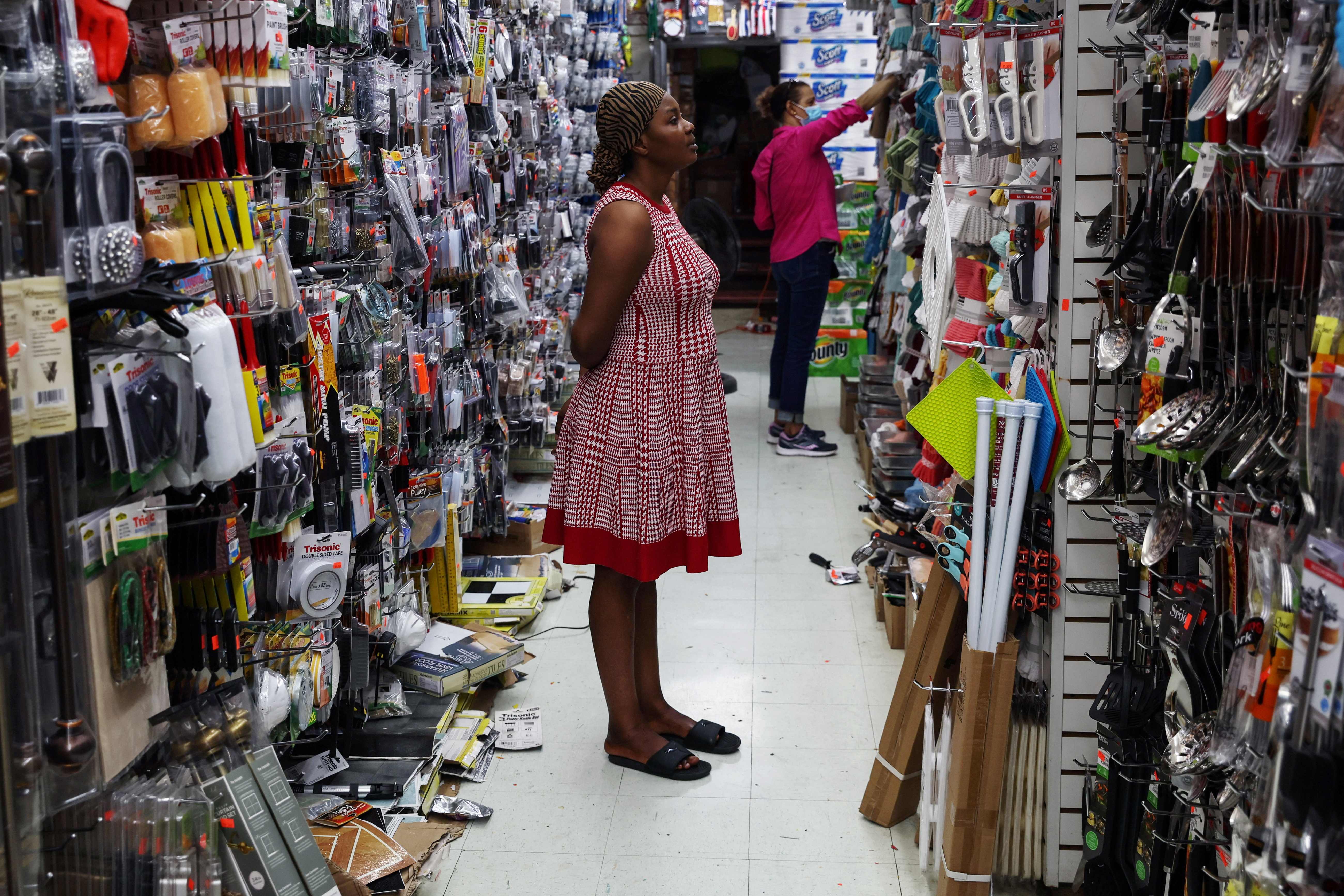
People shop at a 99 Cents retail store in the Bronx borough of
New York City, U.S., July 13, 2022.
REUTERS/Shannon Stapleton
NEW YORK, Oct 13 (Reuters) - U.S consumer prices increased more than expected in September and underlying inflation pressures continued to build up, reinforcing expectations that the Federal Reserve will deliver a fourth 75-basis points interest rate hike next month.
The consumer price index rose 0.4% last month after gaining 0.1% in August, the Labor Department said on Thursday. Economists polled by Reuters had forecast the CPI climbing 0.2%.
In the 12 months through September, the CPI increased 8.2% after rising 8.3% in August. The annual CPI peaked at 9.1% in June, which was the biggest advance since November 1981. read more read more
MARKET REACTION:
STOCKS: S&P 500 futures turned sharply lower, and were down 2.0%
BONDS: The yield on 10-year Treasury notes rose to a 14-year high and was up 12.4 basis points at 4.026%; The two-year U.S. Treasury yield, surged to a 15-year high and was up 18.3 basis points at 4.470%.
FOREX: The dollar index turned 0.44% higher
ALAN LANCZ, PRESIDENT, ALAN B. LANCZ & ASSOCIATES, TOLEDO, OHIO
"CPI was disappointing. Investors were hoping to get a little control on inflation, and obviously the market's reacting in that capacity.
"With these CPI numbers we're almost back to that end of the second-quarter mid-summer sentiment that maybe we haven't seen the worst, and that maybe it's not something that could be temporary."
MACE M. MCCAIN, PRESIDENT, MANAGING DIRECTOR, CHIEF INVESTMENT OFFICER, FROST INVESTMENT ADVISORS, LLC
"CPI came in much higher than expectations, both the headline number and the core, and that's disappointing. We would have hoped to see some moderation in inflation and we're not seeing that at this point. There's just nothing to dissuade the Fed from their path."
“Monetary policy works with the lag and so they may be getting ahead of themselves. But certainly with the sentiment we've been hearing from the Fed governors, I don't think that there's anything that's going to dissuade them at this point from continuing their path."
IAN LYNGEN, HEAD OF US RATES STRATEGY, BMO CAPITAL MARKETS
"Ahead of the data the market was well bid with 10-year yields dropping below 3.85% as headlines surrounding the potential reversal of some aspect of the UK's fiscal plan hit the tapes. The price response in reaction to the data has more than erased that rally and from here we'll be watching for a break of 4% to put a larger downtrade to 4.103% as next support. We're on board with a larger flattening, and while there is sure to be chatter on the potential for a 100 bp hike, this print cements 75 bp in Nov with the more relevant question whether Dec and Feb's hikes will be upsized
KEN POLCARI, MANAGING PARTNER, KACE CAPITAL ADVISORS, BOCA RATON, FLORIDA
“Not good, hello – market collapsing. I’m not surprised – why is anyone surprised? It is not responding, it is clear the Fed put us in this position they should’ve been more aggressive months ago but they weren’t and now they are going to be forced out probably in December to probably go another 75 basis points. Because the November CPI and PPI, now that oil is up 22% this month, next month that is going to be reflected in that number so CPI, PPI is going to rear its ugly head even higher next month.”
“They are too late to the game and it is not working because inflation is becoming entrenched so I don’t think it is working right now."
ARTHUR LAFFER JR., PRESIDENT, LAFFER TENGLER INVESTMENTS, NASHVILLE, TENNESSEE
"Those are high numbers. The Fed's definitely raising by 75 bps next month and I would not be surprised if it's 50 bps or 75 bps again in December."
"Basically this quarter is the start of a recession even though it may not show up in numbers until the first quarter. All you have to do is look at housing stocks to know it's coming. With a 3.5% unemployment rate, there's no way the Fed is going to stop raising rates until after the end of the year."
"Anybody who says (Fed could) pivot is wishful thinking right now. The Fed has got to get a handle on inflation right now. Soft landing is also becoming wishful thinking the more they raise rates. We're going to have a really soft, maybe even negative fourth quarter."
"A lot of what central bankers worry about is legacy, for better or for worse. No one wants to be Arthur Burns and everyone wants to be Paul Volker and J. Powell probably has the same feeling that he would much rather suffer through a year or two of pain by slowing the economy and getting inflation under control than not. I think he's going to err on the side of overraising rates and slowing the economy more than he probably would otherwise do because he doesn't want a rerun of 1970s inflation. They are worried about liquidity but look what it's cost the yen because of the BoJ and when the BoE intervened."
BRIAN JACOBSEN, SENIOR INVESTMENT STRATEGIST, ALLSPRING GLOBAL INVESTMENTS, MENOMONEE FALLS, WISCONSIN
“That inflation report certainly sucked the enthusiasm out of the room. We expected deflation in durables and nondurables, which we got. It’s mostly shelter that is pushing inflation higher and that’s a horribly lagging indicator based on how it’s calculated by the BLS. Perhaps instead of talking about core inflation the Fed will talk about “super core” where it excludes food, energy, and shelter.”
ROBERT PAVLIK, SENIOR PORTFOLIO MANAGER, DAKOTA WEALTH, FAIRFIELD, CONNECTICUT
"Data came in hotter than expected and that's a bit of a disappointment for the overall market. It's saying that inflation is still not under control. The Federal Reserve will most likely continue with their pace of rate increases. There is no pivot in the near-term future which the market had been hoping for."
RYAN DETRICK, CHIEF MARKET STRATEGIST, CARSON GROUP, OMAHA
“This is a yet another disappointing sign that inflation continues to stay stubbornly high. Thus opening the door for the Fed to continue its extreme hawkish stance. This follows on the heels of the producer level inflation that we saw just yesterday, that came in hotter than expected, showing the overall inflation backdrop continues to disappoint to the upside.”
“The hopes for a pivot are on pause. There are still two more CPI prints before the December meeting with the Fed, but for now, the pivot is on pause. We have to continue to wait to see inflation start to come back down faster, which unfortunately, the data is not showing right now.”
“The data is confirming that the overall backdrop of prices is staying higher across the board, which is a disappointment and suggests the Fed will have plenty of runway to remain hawkish. And the market doesn't like that.”
“October historically is quite volatile, leading up to that reputation. Now we turn our focus to earnings season - how strong is corporate America and the consumer. Inflation is a clear worry, but now the next worry is what does the economy look like? And what all corporate America has to say about these continued higher prices and how much it's impacting potential consumption. That's why this earnings season will be very important to get those clues.”
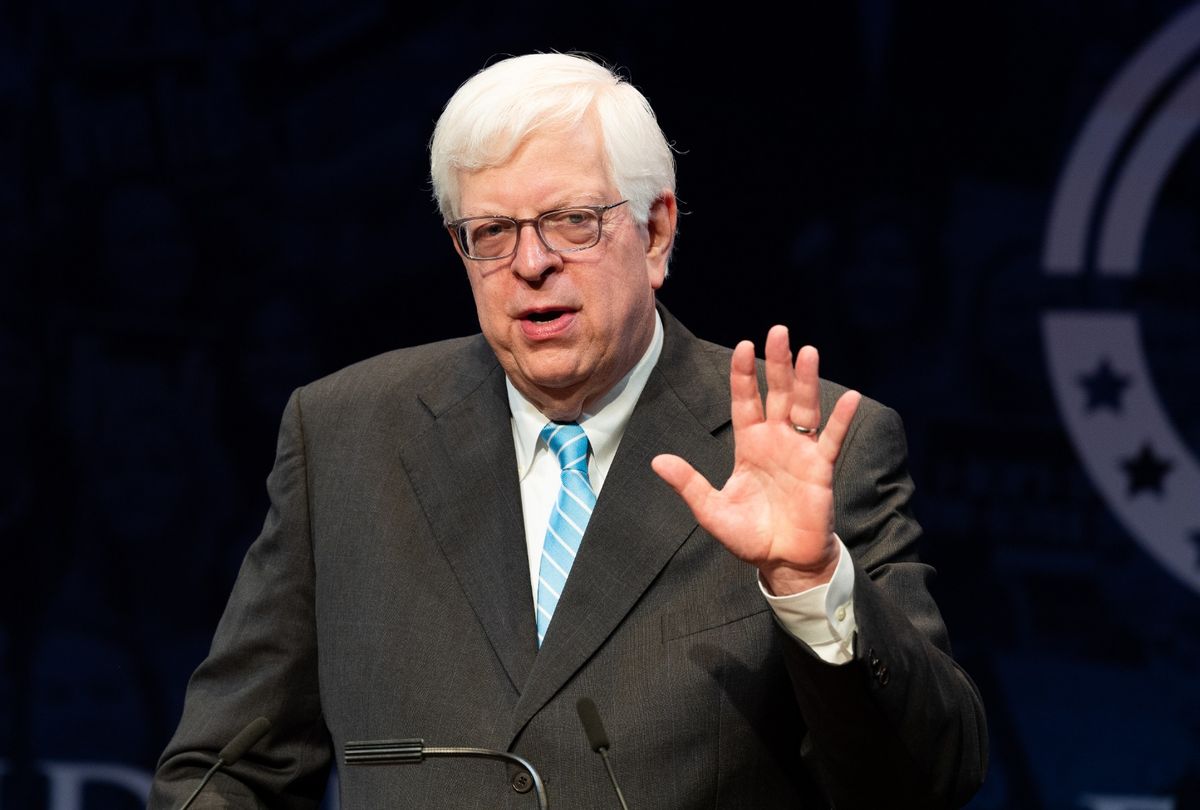





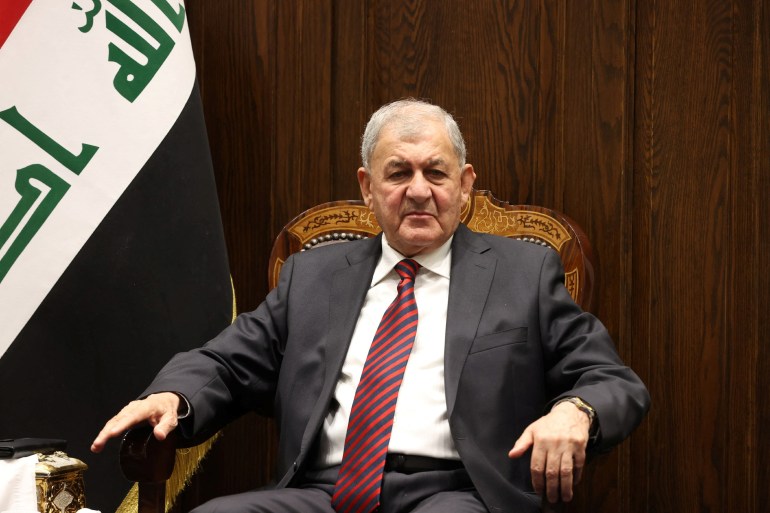
:quality(70)/cloudfront-eu-central-1.images.arcpublishing.com/thenational/F2OZMWLGBG65QBTY2IVSW5DDUE.jpg)
